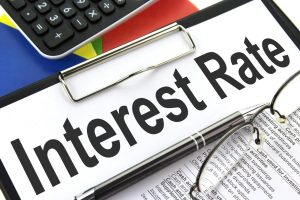Every borrower wants to get the lowest mortgage rate, and so mortgage rate lock in in the way to go
By: Hitesh Khan/

Mortgage rates don’t stand still, they fluctuate, moving up and down over a period of days, weeks, even hours. Given that it can take a month or two to close on a home or a mortgage refinance, how can you pin down a low rate and be sure it will still be available to you when it’s time to sign the papers?
When you take out your loan has a big effect on your mortgage rate. Mortgage rates today may change by tomorrow or even within a few hours, based on market conditions. The lowest mortgage rates you can get today may be higher or lower than the rate you would get a week or a month from now – sometimes considerably so.
To reduce the uncertainty, you can do mortgage rate lock in with today’s mortgage rates when you apply for a loan. That way, if rates rise over the weeks before you close, you still get the rate you locked in.
Table of Contents
But what if rates fall? Many lenders have a provision that allows you to re-lock your rate if it drops by a certain amount before you close, often a quarter of a percent. So you’re protected in case the market moves lower. But not all lenders do this, so be sure to ask in advance.
For those that want to do mortgage rate lock in, there are generally two types of home mortgage rates available for loans – fixed and adjustable (also called variable). With a fixed-rate mortgage, your mortgage rate never changes. It’s locked in for the life of the loan. The same is true for your monthly payment, though property taxes and homeowner’s insurance costs may rise.
With an adjustable-rate mortgage (ARM), your rate can fluctuate over the life of the loan. Usually, the rate is fixed for the first few years of the loan and then begins to adjust periodically to reflect current market conditions. Your monthly payments could either rise or fall, depending on what interest rates do.
A fixed-rate mortgage offers predictable costs and protection against the possibility that interest rates may rise. A variable-rate mortgage typically offers lower initial rates, but where they go after that is uncertain. If the economy heats up and inflation kicks in, your rate could rise quite a bit.
A fixed-rate mortgage is generally better for people who expect to stay in their homes for a long time and will benefit from locking in a rate. A adjustable-rate mortgage may be better for people who expect to move or refinance in a few years and will benefit from a lower short-term rate.
To get the best mortgage rate lock in, talk with a couple mortgage professionals for some advice on your qualifications and guidance on your mortgage options, including setting a budget for your loan. Find out what sort of mortgage loan rates they’re offering, but don’t make a commitment yet.
Then compare mortgage rates from a number of lenders. Check with a number of different types: banks, credit cooperatives, mortgage brokers, nonbank lenders, etc.
See who’s offering the combination of the best mortgage rate and terms for a borrower with your credit profile, income and down payment in the loan amount you’re seeking.
Remember that home mortgage rates can change daily and sometimes even several times a day. So it’s important to get all your rate quotes the same day, or better yet within a few hours of each other, so you know you’re making a valid mortgage loan comparison among lenders.
When shopping for a home loan, it’s not enough to merely look for cheap mortgage rates. An unusually low rate can often disguise the fact the loan has other costs built into it that can actually make it more expensive than another loan with a higher rate. One of the most common ways of doing this is through origination fees.
Origination fee, or sometimes called a processing fee, is an upfront fee charged by the bank as a percentage of the loan amount. It is an upfront fee because it usually directly deducted from the loan amount at disbursement.
Loan origination describes the whole process of borrowing from the point where the borrower submits the application forms to the stage where the funds are finally disbursed. Meaning this fee is for the payment of the services rendered to realise the loan.
A useful way to compare competing loan offers is through the annual percentage rate (APR). APR expresses the total cost of a mortgage as an interest rate, and is usually included with any advertisement or offer of a mortgage rate. It’s not 100 percent accurate, particularly if you sell or refinance before the loan is paid off, but it’s a good rule of thumb.
Finding best rate online for mortgage rate lock in
Online lending and mortgage research can make it a lot easier to compare mortgage rates and shop for a home loan. You can quickly obtain quotes from a number of lenders for their latest mortgage rates and sort through them to find the best deals.
Searching online also gives you access to a wider range of lenders. You can do mortgage rate comparisons with lenders who may not have a brick-and-mortar office in your immediate area but still can originate mortgages there.
There are several ways to search for cheap mortgage rates online. You can go directly to the web pages of various lenders and check the best home loan rates they’re offering. They’ll usually have their daily mortgage rates listed. Often, a form will be provided where you can submit information about the type of loan you’re seeking and your credit profile, so you can obtain a rate quote tailored for you personally.
Another way is to use a rate quote service. You submit the information about your credit and the loan you’re seeking, but instead of getting a rate quote from a single lender, you get competing quotes from multiple lenders. This allows you to do a mortgage rate comparison among them and choose the best mortgage rate among them. Always check to see when the information was last updated. If a site isn’t showing today’s mortgage rates, you know it’s outdated and may not be comparable to rates on other sites.
Be mindful that several major factors that affect the best mortgage rate you can obtain.





